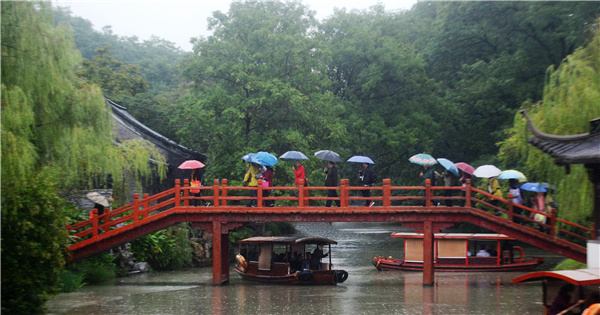A city built by water
By Cheng Yuezhu | China Daily | Updated: 2021-01-19 07:30

The canal brought economic prosperity and cultural progress to the city.
Although it was initially constructed for military purposes, it later facilitated the national food supply, including grain and salt.
Yangzhou was, therefore, home to many salt merchants, who built elaborate Chinese gardens that remain to this day.
Historical records from the Tang (618-907) and Song (960-1279) dynasties describe Yangzhou as the country's most affluent city.
"This prominent status comes from the canal. And the city continued to expand the canal grid as Yangzhou flourished. So, the canal network and city share a growth dynamic," Gu says.
"The canal was constructed for the city's economic, cultural and social development. And development, in turn, required canals with higher transport capacity."
This history will be showcased at the Yangzhou China Grand Canal Museum, scheduled to open in July.
The museum is designed to be an "encyclopedia" of the canal, showcasing relevant culture, economics and ecology using immersive technology and interactive design.
Huang Jie, executive vice-dean of Yangzhou University's Grand Canal Research Institute, also says that Yangzhou and the canal share a relationship of reciprocal advancement.
The institute was established in 2017 to study the canal and relevant heritage sites, use technology to preserve the ancient waterway and build databases to inform policymaking.
























